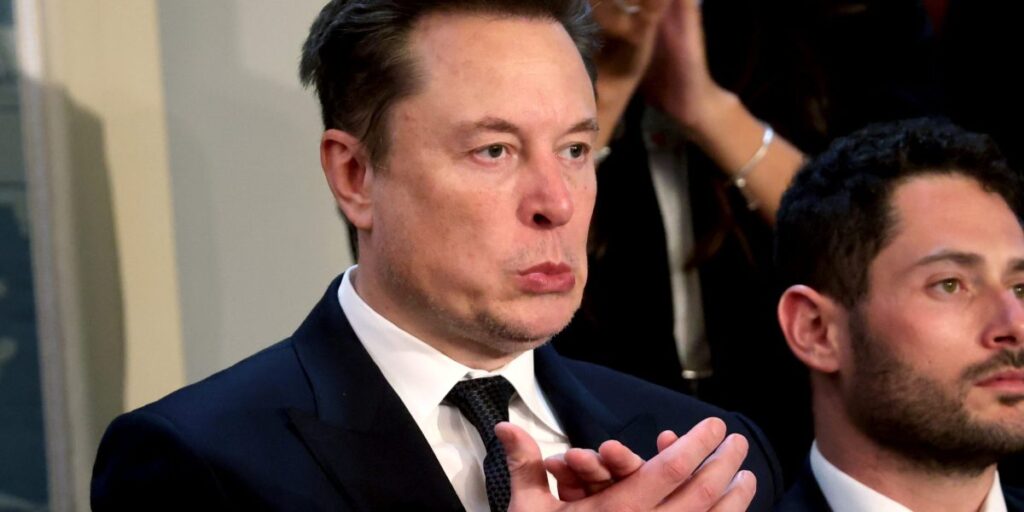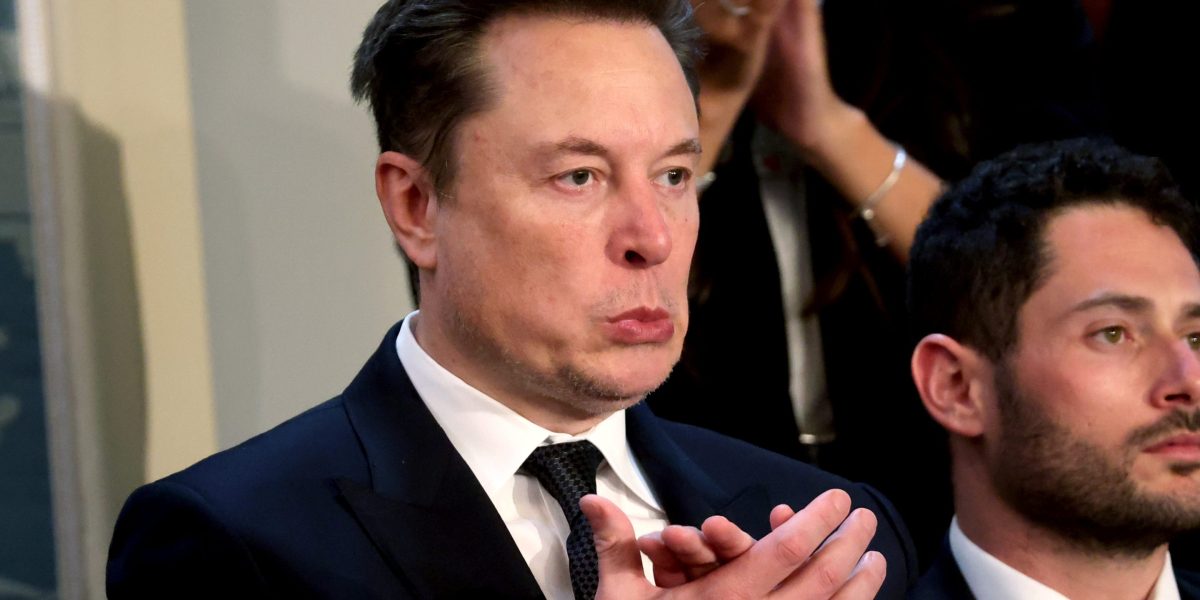EU warns Elon Musk over X compliance—he fires back with vulgar ‘Tropic Thunder’ meme
The EU Commission forced to defend claims a strongly worded letter to Elon Musk was proof Brussels is interfering in U.S. elections.


X owner Elon Musk pushed back against a European Union official who warned him about compliance with the bloc’s new Digital Services Act (DSA).
Musk’s borrowed a colorful phrase from Tom Cruise’s foul-mouthed character in the 2008 comedy ‘Tropic Thunder’ for his response, which essentially amounted to ‘go shove it’ if you’re being polite.
While this scenario played out in Europe, it is worth noting the contrast in Musk’s approach when dealing with another major global power—China.
Despite his usual outspokenness, Musk has consistently refrained from criticizing Chinese President Xi Jinping or other high-ranking officials.
This reticence is understandable given that approximately half of Tesla’s electric vehicles are manufactured in China, and the social media platform X, owned by Musk, remains inaccessible in the country due to stringent censorship laws.
To be honest, I really wanted to respond with this Tropic Thunder meme, but I would NEVER do something so rude & irresponsible! https://t.co/jL0GDW5QUx pic.twitter.com/XhUxCSGFNP
— Elon Musk (@elonmusk) August 12, 2024
How did this all start?
It started with a letter posted on Monday by EU Commissioner Thierry Breton warning Musk he was not complying with a duty to police harmful disinformation spread to EU citizens on his social media platform X.
Under the DSA, platform owners are obligated to remove illegal content as well as take concrete steps to mitigate against legal but harmful content such as disinformation or misinformation.
Both Musk and Trump have previously produced and distributed such content, and combined, they pose a considerable problem for Brussels.
The EU opened formal proceedings against X in December, with the Commission informing Musk’s company last month of its preliminary conclusion that it is, in fact, in breach of the legislation. (Meta and TikTok are also being investigated.)
“Let me clarify that any negative effect of illegal content on X in the EU […], may be relevant in the context of the ongoing proceedings,” posted Commissioner Thierry Breton.
Letter not discussed with EU Commission president beforehand
But the timing of the letter and the heavy-handed nature of Breton’s warning, which referenced Musk’s interview with Donald Trump, prompted the search term The EU to trend on X in the United States.
The platform’s CEO, Linda Yaccarino, swiftly condemned Breton’s letter as an intervention into America’s internal affairs.
“This is an unprecedented attempt to stretch a law intended to apply in Europe to pollical activities in the U.S,” she wrote.
Musk on the other hand abandoned etiquette entirely in his reply. Writing to Breton, responsible for industrial policy in President Ursula von der Leyen’s outgoing first administration, the X owner advised the Frenchman to engage in sexual acts with himself in an unorthodox manner.
In a media briefing on Tuesday, the Commission declined repeatedly to comment on Musk insulting one of its top officials in such a vulgar manner.
Yet it did reveal, when asked, that both the timing and the wording of the letter had not been coordinated with von der Leyen, or indeed with any other of Breton’s peers.
It also forced a spokeswoman for the Commission to clarify that the letter was not meant to censor Musk’s interview with Trump, an avowed opponent of the EU.
“The idea behind the DSA is to replicate [the same legal practices] online what we have offline, so what is illegal offline has to be represented online,” the spokeswoman said. “In no way did the letter want to interfere with the U.S. elections.”
She also added the DSA only enforces online platforms’ obligation to prevent the dissemination of illegal content in the EU proper, not in foreign jurisdictions such as the United States.
Musk helped stoke recent race riots in the UK
It’s one thing for Musk to deliberately and explicitly tell advertisers leaving his social media platform to “go f— yourself” (only to turn around and sue them when they did).
It’s another thing entirely to tell the executive branch of the European Union to do the same.
The EU is by no means without critics: the UK even left the bloc in February 2020, preferring deeper ties with the United States and Asia.
Eurosceptic and far-right sovereigntist parties also picked up more seats in the EU Parliament elections held in June.
But the creation of the Single Market has ensured that Europe continues to have a seat at the table when major powers negotiate global trade and economic policies. Unlike post-Brexit UK, it remains a rule maker, not a rule taker.
Critics like to argue that because Europe’s bureaucratic culture cannot innovate, it is forced to regulate, with the DSA being a prime example.
It is designed to provide guardrails that prevent online platforms from spreading disinformation at the speed of light to tens, if not hundreds, of millions of people across the EU.
This happened on a smaller scale recently in the UK, where the tragic murder of three young girls in the working-class community of Southport was falsely pinned on a fictitious illegal Arab migrant, sparking widespread race riots that targeted Muslims.
While X was only one of the various platforms used to disseminate incitement to violence, only Musk gave his own personal stamp of approval.
He predicted the UK would collapse in civil war, accused the government of policing white communities and boosted white nationalist and far-right agitators like Stephen Yaxley-Lennon, aka “Tommy Robinson”.
EU sends warning letter to Musk ahead of Trump interview. How stupid are these regulators @elonmusk ? Love your standing up to them. https://t.co/kXjVfDHywk
— Vinod Khosla (@vkhosla) August 13, 2024
Now Musk threatens to do the same in Europe, a continent that twice engulfed the world in war over ethnic and racial hatred.
Brussels drafted the DSA to create a level playing field in which online platforms can compete while at the same time handing them the responsibility to moderate content on their sites.
“The DSA is a cornerstone of the EU digital strategy and sets out an unprecedented new standard for the accountability of online platforms,” the Commission spokeswoman said.
Nonetheless many, including Silicon Valley venture capitalist Vinod Khosla, still view it as governmental overreach. “How stupid are these regulators?” the 69-year-old Trump critic posted to Musk. “Love your standing up to them.”





